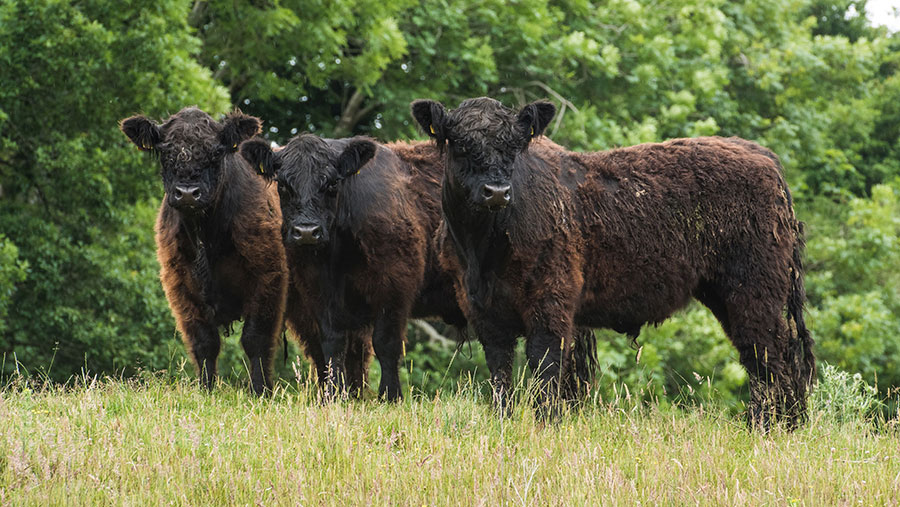Farmer-led Scots beef group to find ways to cut emissions
 © FLPA/Shutterstock
© FLPA/Shutterstock NFU Scotland (NFUS) has welcomed a new farmer-led group that will examine how to reduce greenhouse gas emissions within the suckler herd.
In response to calls for the beef industry to adapt and meet ambitious climate change and biodiversity targets, the group will show farmers how they can play their part in a low-carbon, sustainable future.
It will also produce recommendations to improve the efficiency, productivity and profitability of Scottish beef, including changes to breeding and feeding practices and the restoration and improvement of natural on-farm habitats.
See also: Scottish farmers offered £40m to tackle climate change
The group will be chaired by former NFUS president and Dumfriesshire farmer Jim Walker, along with John Kerr, the Scottish government’s head of agricultural policy.
Announcing the group, Scottish rural economy secretary Fergus Ewing said: “I have asked Jim Walker to chair a farmer-led group to specifically look at what our beef suckler herd needs to do and bring forward initial proposals next month.
“I have been clear that our farmers, crofters and land managers are part of the climate solution. But equally, I am clear that achieving our legally binding commitments will require everyone to consider what they can do to ensure they play their part in driving the sector towards a low-carbon, sustainable future.”
‘Game changing’
Mr Walker added: “Providing progressive beef farmers with the tools to make their businesses more productive and efficient, alongside measures to improve on-farm emissions to help fight climate change, is yet another chapter in this story and is potentially game changing.
“Naturally reared, climate-friendly Scotch suckler-bred beef needs to be differentiated from imports and dairy beef to give consumers a clear choice. This initiative will give those farmers who want to be involved a real chance of delivering this, helping make their businesses more robust.”
NFUS president Andrew McCornick said the new group helps to build momentum following a commitment from the Scottish government of £40m funding to support farmers as they plan and transition to a “low-emissions future”.
He said: “Emissions from farming have significantly reduced since 1990, but it is clear there is more to do if we are to continue that progress and meet ambitious emissions reduction targets set by the Scottish government.
“In our iconic beef sector, that process already has a foothold. Over the past five years, there has been a significant increase in the number of Scottish beef farmers and crofters undertaking carbon audits, bolstered by support from the Scottish government.
“That clearly shows the industry is committed to do its part to tackle the challenge head on and ensure it is a global leader in producing climate-friendly beef.”
Agriculture emissions
According to Defra figures, UK agriculture is responsible for 10% of total UK greenhouse gas emissions, of which 90% is methane from livestock and nitrous oxide from fields. Emissions from livestock are estimated to be about 5% of the country’s total greenhouse gas emissions.
Scotland is targeting net-zero carbon emissions by 2045 – five years ahead of England. It has also set an earlier target to reduce carbon emissions by 75% by 2030. The NFU has set out an ambition for the industry to reach net zero by 2040.
